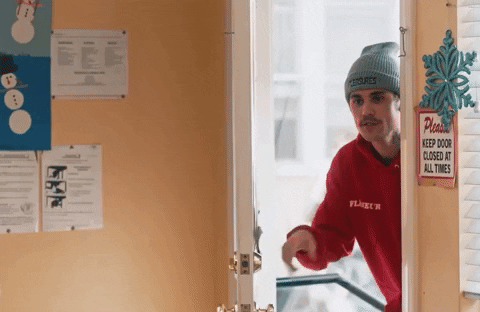No Spend November: Budgeting Every Dollar
Fernanda and Evan finish sharing their NSN reflections over a winter coffee in Canada's capital.
Christmas in Canada’s Capital
The hum of my trusty Corolla's engine blended with a playlist of our favourite tunes as we embarked on an anticipated road trip to Ottawa. The reason? A Christmas party at Sacha and Eliott’s downtown condo. We all know the feeling: a crisp, sunny morning, the open road ahead, and the excitement of another Christmas season filling the car. Fernanda's laughter, as infectious as ever, echoed over the sound of passing cars and the occasional honk of an overzealous driver. The journey, a break from our usual routine, was a perfect prelude to our conversation about No Spend November - a contrast to the freedom of the open road and the discipline of tight budgeting.
As we rolled into the vibrant heart of Ottawa, the city's energy seemed to mirror our own - lively, bustling, and full of possibilities. It was during a quick stop at a quaint café overlooking the Rideau Canal, cups of steaming coffee in hand, when Fernanda turned to me with a curious sparkle in her eye.
“Hey!" said Fernanda, “We never finished that No Spend November conversation from our date night. I’ve been meaning to ask you about your experience; what were your rules for No Spend November?"
Budgeting Every Dollar
I chuckled, remembering the strict regimen I had set for myself. "Well, as you know, I budget for every dollar,"
Budget Every Dollar
I must give credit to David Ramsey for the term. Budgeting for every dollar simply means delegating cash outflows (savings, debt repayment, and expenses) that exactly equal your projected income. If you project to earn $5,000 monthly, you must account for $5,000 in cash outflows.
“Just like you, I budgeted for my discretionary expenses only.” I sipped my coffee, its warmth pleasantly contrasting to the cool air outside. “Then, where you channelled most of your unspent cash toward savings, I accounted for all of my unspent cash to flow into debt repayment. Of course, I set aside 10% of my gross income to Pay Myself First before any of that.”
With money, Fernanda knows that I like to tie up all the loose ends. “Budgeting Every Dollar seems like a pretty strict way to budget - why do you do it?”
“Quite honestly, it is my preferred budgeting method for self-accountability. By Budgeting Every Dollar, I know that an unbudgeted cash flow comes at the cost of a budget cash flow. In other words, when I buy something I didn’t budget for, I can no longer afford all the things that I did budget for; the money has to come from somewhere.”
“That sounds pretty intense”, says Fernanda, sitting back in her chair as she puts her coffee down. “You had that business trip to Colombus in early November, right? Surely you couldn’t accurately budget every dollar for such an unpredictable trip. How did it impact your budget?”
“It was a bit of a balancing act,” I admitted. “Other than a few necessary expenses like a beer, a coffee, and some meals, I stuck to my budget quite well, thanks to most of our expenses being covered by the company.”
I continue about the Budget Every Dollar approach, “To be clear, just because I budget for every dollar doesn’t mean I anticipate my cash flows to go exactly as planned. With all budgeting, it's important to factor in the unknown. Budgeting extra cash toward fluctuating expenses or minimizing any overestimations on net income are good examples.” Our eyes lock, signalling that I haven’t put her to sleep with boring finance talk yet.
“This month, an overestimation in my income had the largest impact on my ability to obey my budget. The unforeseen trip expenses, though only around $300, plus some unanticipated car expenses of around $200 made things only marginally more difficult.” Fernanda draws a yawn, her body fighting the lullaby we call personal financial literacy. Nonetheless, I continue. “The real damage was done on my debt repayment goals, where I only reached $183 of my projected $900.”
Recovering eye contact, Fernanda asks about my savings success.
“My savings grew according to plan.” I reach for my coffee, satisfied with the small win. “I followed my Pay Yourself First target of 10% of my gross income, plus I put away $541 for our trip to Uruguay in January.”
Fernanda reminds me that this is all part of the journey, “Perfect budgeting is impossible, and that’s a good thing. Who wants to live a life where perfect budgets are achievable? A boring and unpractical life indeed.”
NSN: The Bigger Picture
“So beyond the monthly budget, what did you take away from No Spend November?” Fernanda asks.
Evans NSN Takeaways
“NSN was great for eliminating the frivolous spending that we mentioned two weeks ago. I probably eliminated around $1,000 in expenses that would’ve otherwise gone to mostly consumable stuff. That being said, I also realized that some of the expenses I avoided in November were just pushed off until now. Did you hold off on any purchases that you’re going to need to make regardless?”
Fernanda nods in agreement, “Oh for sure I did, I know we both are looking to buy items for the bedroom and home office, like those command hooks.”
“See, part of me feels like pushing those expenses off was a little unnecessary knowing that we will buy them anyway.” I enter into a deeper focus as I consider the weight of this statement. “I guess the benefit is in infusing time into the decision-making process, allowing us to think if we really need something. For those consumable items, NSM made it pretty clear how important it is to take time before making a purchase. Often, I pull the trigger by habit or instinct.”
Fernanda sums things up nicely as she finishes her drink, “Like you always say, it’s all about balance and moderation!”
Reflection
As we saw with Fernanda’s shopping spree, there’s more to life than endlessly pushing frivolous spending off to some point in the distant future. It’s important to find the between enjoying the present moment and preparing for the future. David Chilton wasn't wrong when he wrote about paying yourself first and living within your means.
Budgeting and decision-making, like a lot of things in life, require tremendous give and take. Life requires rigidness with flexibility; and the ability to take the wins with the losses. Reaching the goal of financial responsibility is a never-ending pursuit, and amidst an always-changing life, being able to nail budgets is not practical, enjoyable, or drastically beneficial. It’s the continuous reps and the innate considerations of financial tradeoffs that will provide the most value to your financial skillset.
We stood up and set on our way to Sacha’s place, hearing that classic café bell ring as we head through the door.
Happy New Year! Here’s to another year of reading, writing, and sharing personal financial literacy.
As I continue on this journey, I constantly troubleshoot my approach to writing and creating content in a way that provides positive value through education or otherwise. 2024 will be a super exciting year for my personal and professional development, as you will see with upcoming changes to the blog.
While on this ride together, I would love to hear from you. Always feel free to drop a comment or reach out directly - maybe we can turn a good conversation into a blog entry.
I’ll be travelling until mid-February, but I have some knockout editions lined up for you. Surely you’ll read some stories about the trip when I return.
Thanks for reading!








